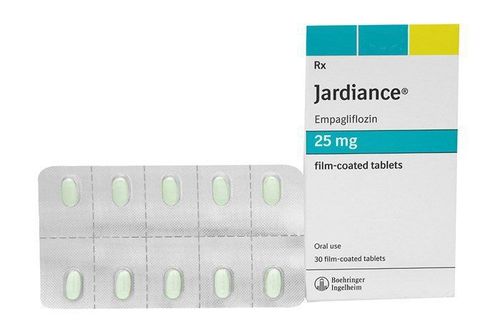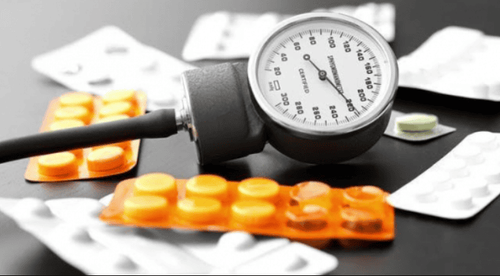This is an automatically translated article.
Many drugs can cause unpleasant side effects or health problems when taken. In this case, you will immediately think about changing drugs. In fact, there are other ways to avoid or at least reduce the side effects of the drug.
1. Side effects are unavoidable when taking drugs
Prescription drugs are prescribed by your doctor based on your current medical condition and prevent or control long-term conditions. But sometimes they also have unwanted side effects. However, you should not stop taking medication on your own, but you should also not accept unpleasant reactions without asking your doctor.
Side effects can happen with almost any drug, they are common with everything from birth control pills to anti-cancer chemotherapy drugs. For example, many prescription drugs cause stomach problems such as nausea, diarrhea, or constipation, as they pass through your digestive system. Other medications, such as antidepressants, muscle relaxers, or medications for blood pressure or diabetes, can cause dizziness. Others can make you sleepy, depressed or irritable, cause weight gain, disrupt sleep or reduce sex drive, etc.
However, we don't have to accept that. All side effects of the drug, especially chronic symptoms, are harmful to users.

Tác dụng phụ có thể xảy ra với hầu hết mọi loại thuốc gây ra các vấn đề về dạ dày như buồn nôn
2. Seeking help when experiencing side effects of drugs
When your doctor first prescribes a new medication, you shouldn't be shy about asking about the common side effects of that drug. You should know which side effects are serious, which will go away on their own, and which are preventable.
When you start taking the medicine, tell your doctor about any symptoms you experience as soon as possible. Some medication side effects will go away over time as your body gets used to the drug. Therefore, you should stick with your current treatment plan a little longer. In some cases, you may be able to reduce the dose or try a different medication.
We often think that only, because of a bad reaction to a drug, decide not to take any other drug of the same type but in reality this is not always the case. Sometimes side effects are due to very specific ingredients that are not used by all drug labels.
Changing the time of day to take your medication may also help if your doctor agrees. For example, if you're taking four blood pressure medications, don't take them all at once. Or for birth control pills or antidepressants that make them dizzy, they should be taken right before bedtime.
3. Make a list of all drugs
When talking to your doctor, give a list of all other medicines or supplements you are taking including prescription and over-the-counter medicines. Because sometimes side effects are caused by two or more drugs reacting negatively with each other.
Remember, the new symptom can actually be a side effect of the medication. If you do not give your doctor enough information, it is very common for him to make a wrong diagnosis and may prescribe another medicine to treat you.

Bạn nên thông báo đầy đủ thông tin các loại thuốc đang dùng cho bác sĩ để điều trị cho bạn.
4. Ask about lifestyle factors that affect medication
There are many factors that lead to side effects beyond medication and you can prevent them by making lifestyle changes. Examples include avoiding alcohol or certain foods or making other small changes to your diet or lifestyle while taking medication. Typically, some medications such as cholesterol-lowering drugs and blood thinners may not work if you eat grapefruit or foods rich in Vitamin K.
5. Actively seek more information about the drug
To be able to handle medication side effects, you should do more research on the medication by reading the label and all the instructions that come with the prescription. Talk to others with similar health concerns and be able to find reliable sources of information on the Internet.
Side effects of newer drugs may not be as well known as those that have been on the market for many years, so proactively ask to switch to an older proven medication. However, you should not stop or change the dosage without your doctor's approval, especially if you are being treated for a serious medical condition. Some medicines must be taken for a full course to avoid getting sick again. Or some medicines won't work if you skip a dose, cut it in half, or take it with or without food.

Khi sử sụng thuốc cần tìm kiếm các nguồn thông tin đáng tin cậy trên Internet
6. Make the most important priorities
You can tolerate some side effects of the drug if the advantages of the drug outweigh the disadvantages. But if a bad drug reaction puts you at risk for other medical problems or seriously affects your health, it may be time for a change.
For example, drugs that cause dizziness can increase your risk of death or serious injury from a fall, especially if you are an older adult. Or treatments that affect your life may not be the best option and alternatives should be considered. Sometimes it takes a bit of trial and error to find an effective medication that doesn't affect quality of life.
However, the best option is still before you intend to use any medicine, you should consult a pharmacist, a specialist doctor. Using the right medication, in the right dose, will bring good results as well as minimize the side effects of the drug.
Currently, Vinmec International General Hospital is one of the hospitals that is always at the forefront of ensuring professional quality with a team of leading medical doctors, a system of modern equipment and technology. Therefore, when there is a need for advice, examination or treatment, customers can contact the hospital directly for the earliest support.
Please dial HOTLINE for more information or register for an appointment HERE. Download MyVinmec app to make appointments faster and to manage your bookings easily.
Reference source: healthlinkbc.ca - webmd.com












